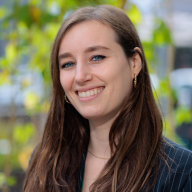
Amarins
Bio
I work at CEA , where I provide support to city/national groups worldwide :)
Previously, I worked at EA Netherlands and the Happier Lives Institute. Before that, I obtained a master’s in Methodology & Statistics in Psychology (and ran PISE alongside that).
Always happy to chat about anything psychology, community building or methodology. If you'd like to talk to me for whatever reason (serendipity!), feel welcome to schedule a call here :)
Posts 2
Comments7
Hey Tim :)
Yeah good question! I don't really see that many risks with a proactive approach, because right now, anyone can decide to start a group, and with this approach there is at least some form of quality control (first from EA Netherlands and then from UGAP). The biggest risk I currently see is value drift if the groups bring on too many new members/co-organizers too quickly, as well as the risk of the groups becoming too homogeneous because they used a somewhat similar approach to get started (intro events -> 4-week fellowship).
What are your thoughts?
Hey Quinn!
That’s a really interesting idea - I’ve made a prediction question about this here: https://manifold.markets/Amarins/will-at-least-7-of-the-new-effectiv. We think there’s a 75% chance that at least 7 of these groups will still be active in 2024 (the definition of active is in the question). Based on the results of PISE, I roughly think that each group could lead to 3-10 new HEAs for each year that they manage to operate.
Could you elaborate a bit on what happened to the group after that residency? Sounds very relevant but I can’t seem to find a post-mortem.
I agree that we should be careful here. I think that the fact that the groups will participate in UGAP this semester (as well as the other great resources that have become available) significantly increases their chances of surviving the critical first year tho, and we will continue to support them as well. It might be good to mention that I also don’t see this post as a declaration of victory (despite the clickbait title) but as a a ‘how & why to try this out’ post (which was the original title).
Hey David_Moss :) It would indeed be very interesting to do this and get some insights into how different names are perceived by students! I think this would be especially useful if we could identify which names are most appealing to ‘proto-EAs’. Otherwise I’m not sure how useful this type of study in itself is to actually find out which name result in most HEAs, as - at least in our experience - a broadly appealing name may not necessarily translate into finding more EAs. For example, when we asked friends for feedback in the brainstorm phase of our name change, ‘PISE’ received more positive reactions than ‘EA’. Yet most people who stayed with our group (and didn’t drop out of fellowships/committees or otherwise become inactive) actually prefered EA or were neutral. A potential explanation for this is that the additional people that a more popular name attracts are actually often people who wouldn’t be interested in EA in the long run (and that casting our net wide doesn’t always translate into more success further down the line). I'm not sure if an online experiment would pick up on who (are likely to) actually become EAs, but if we could relate name preferences to proto-EA characteristics we may be able to capture that.

Hey Brian! It’s a bit late, but someone just pointed me to this post, so I thought I’d still reply. I work in the groups team at CEA and (if it’s still relevant) I would be happy to discuss the decision for reviving the city group vs starting a uni group with you. I’ll DM you my calendly link.